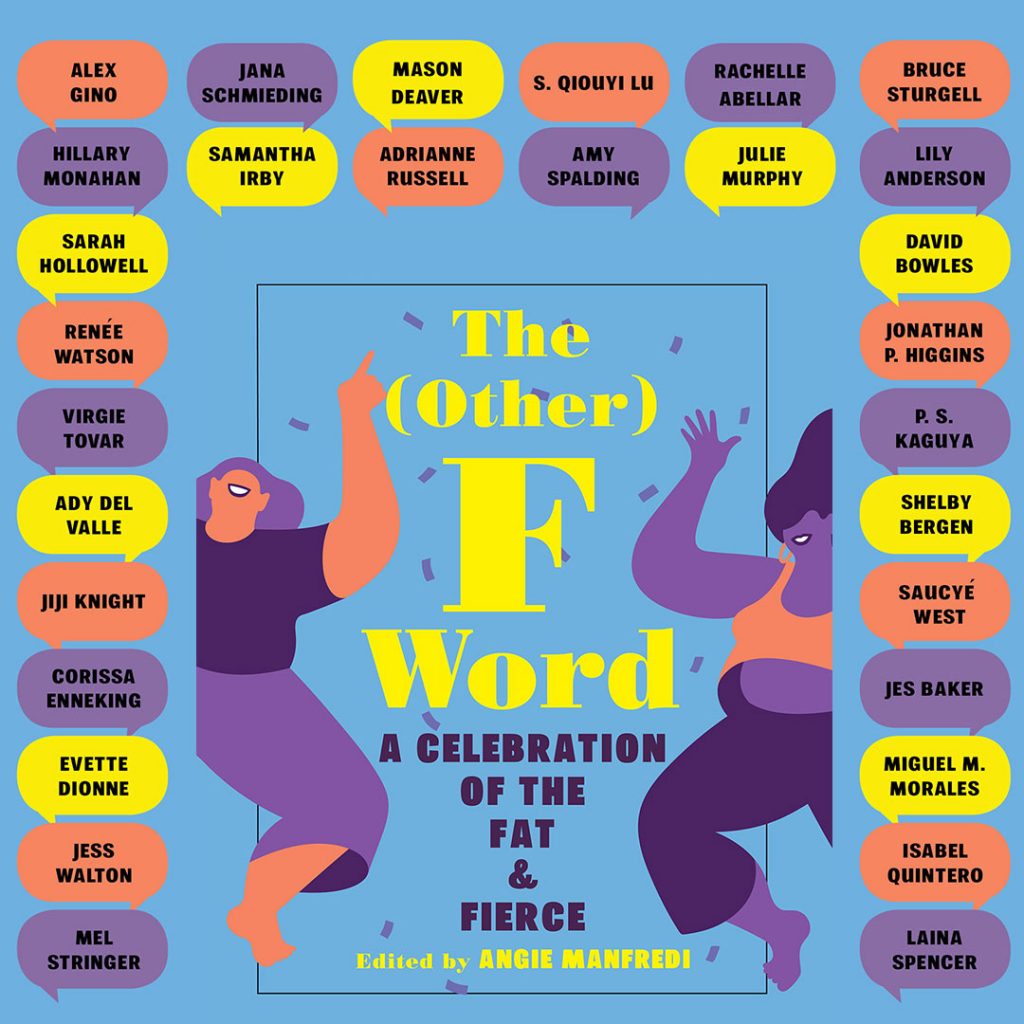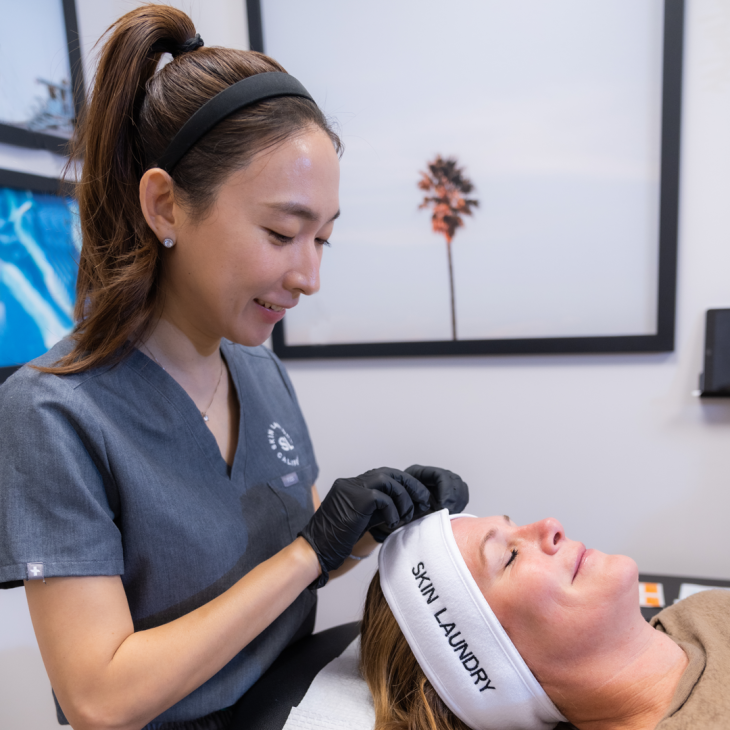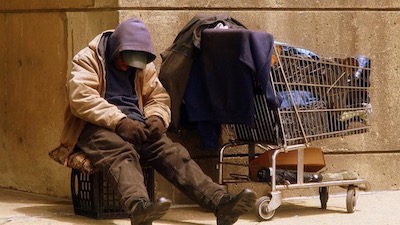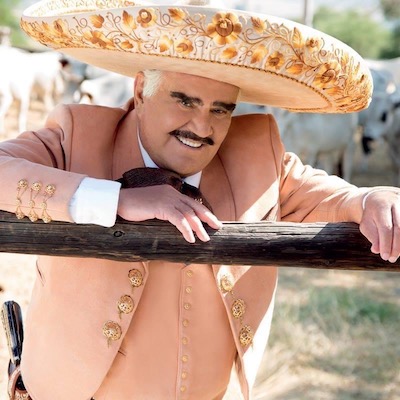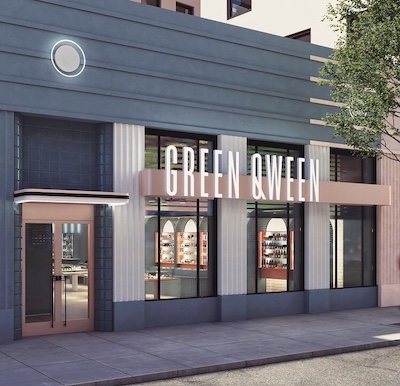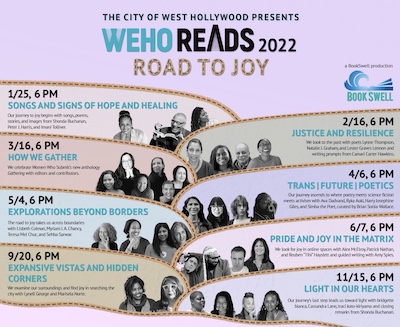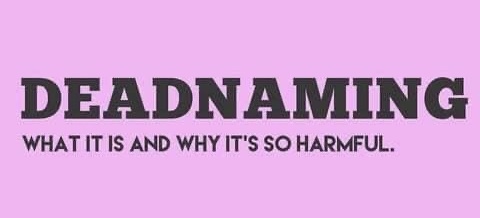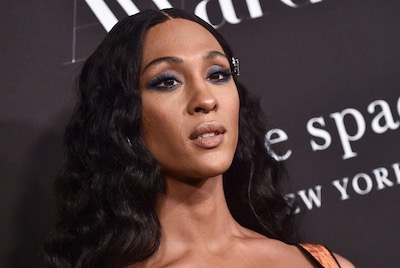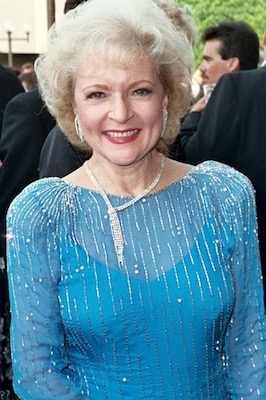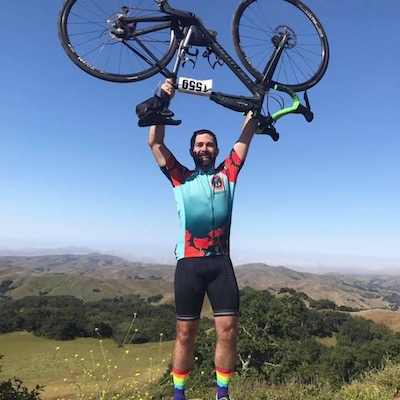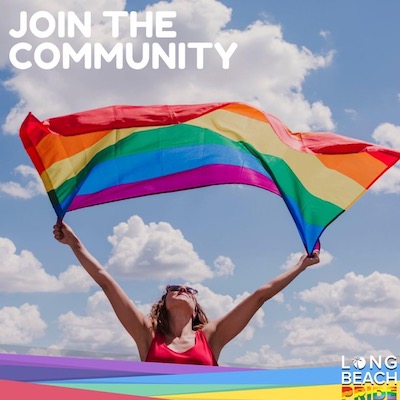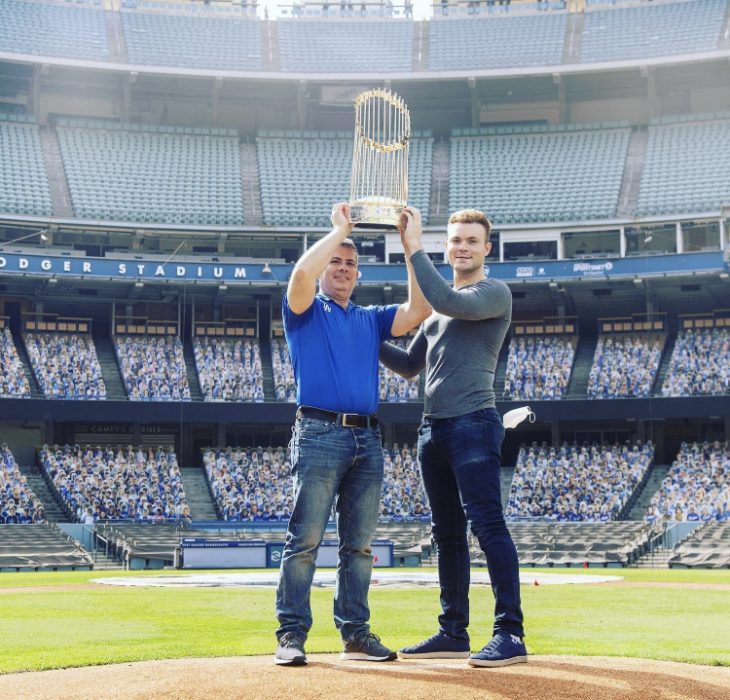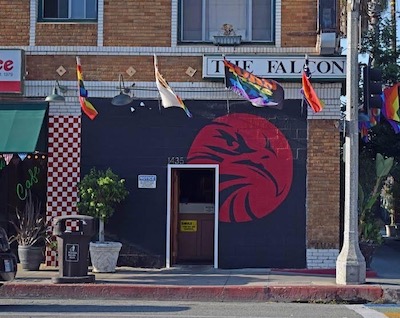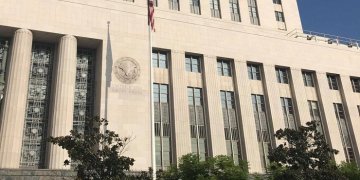Body Image is hard. In a world that keeps telling you that you’re wrong – too femme, too butch, too fat? “The (Other) F Word,” by Angie Manfredi, is a collection of queer art, poetry, essays and fashion tips culminated as a guide to self acceptance.
“Ultimately, ‘fat’ is a word that has been laden with moral expectations. Fat people are often vilified as being lazy, freeloaders, gluttonous, selfish, hedonistic…” book contributor S. Qiouyi Lu says (Check out their interview below). “But being fat has nothing to do with personality, character, or morality.”
“The (Other) F Word” is having a book launch at Flintridge Bookstore on Wednesday September 25 at 6 p.m. The Pride LA spoke with contributors Jon Paul Higgins, S. Qiouyi Lu and Amy Spalding about their experience as both LGBTQ+ and fat. Check it out:
Jon Paul Higgins, Ed.D.

Can you introduce yourself? How do you Identify?
Jon known as DoctorJonPaul
What are your pronouns?
They/Them
In one sentence, what is “the other F Word?”
Revolutionary.
How did you hear about this book project?
Saw it on Twitter. Decided to drop my name in the hat because I was in the process of writing my own book.
Why did you want to contribute/share your story?
Because rarely do you hear/see stories of Black queer fat men. Rarely do folks engage them and I’m hoping that my story will help others begin to tell theirs.
Why/how did you decide to write it?
It began with me pulling some pieces from my own writing. I really wanted to go back to the place I was afraid to visit and begin telling that person that the fear would only last for a bit. It’s more of a story of finding joy.
Why is it important to share queer experiences?
Well, the greater thing is having the space to tell my story the way I want to tell it versus having the world try to do that for me. It’s extremely radical to talk about something the world often feels is taboo.
In your opinion, why is “fat” such a taboo word?
Because the world has been taught to hate/fear the world and those who identify as fat. We are taught to hate ourselves more than to embrace the things that the world often views as a flaw.
How does the identity of Fat intermingle (or does it?) with your identity as LGBTQIA+ :
Again, it makes me the other. But, it also helps me tap into a power than many will never have. I always say, how powerful is it that I’m everything the world hates and yet I still continue to show up and slay?
What do you hope readers take away from your story?
I hope they hear/see themselves. I hope their struggles are validated and hope folks get a chance to know that when reading this, this is just the tip of the iceberg. We need more folks telling their stories and we need more folks engaging them.
What do you hope attendees take away from the book launch at Flintridge Bookstore on Wednesday?
All and all, I hope folks feel like they are in community. I hope folks can finally feel like they have people they can go to if and when the road gets hard.
S. Qiouyi Lu

Can you introduce yourself? How do you Identify? What are your pronouns?
I’m S. Qiouyi Lu (“Qiouyi” is my middle name). I’m bisexual and nonbinary (they/them pronouns).
In one sentence, what is “the other F Word?”
The (Other) F Word is an a multimedia anthology aimed at young adult readers that celebrates being fat.
How did you hear about this book project?
I heard about The (Other) F Word through another contributor, Sarah Hollowell. It seemed like a great opportunity that I had time in my schedule for, so I was happy to contribute.
Why did you want to contribute/share your story?
I thought for a while about how I’d contribute to a fat-positive anthology, as I’m on the smaller end of the spectrum and wouldn’t be considered as visibly fat as others. At the same time, I’ve been told I’m fat my entire life, and that’s specifically through an Asian-American lens, where size expectations both in the US and in the motherlands are different from what mainstream US fashion trends and health guidelines expect. So I wanted to write about how my experiences overlap: How being Asian is part of how I’m viewed as a fat person, how being fat affects how people see (or don’t see) my nonbinary gender.
Why/how did you decide to write it?
I decided to take the plunge and write my essay “Fat, And” because I’ve only seen a handful of essays about being fat and Asian before, and I wanted to present the concept of intersectionality in a way that young adults could connect with. When we talk about political and marginalized experiences, it’s easy to assume that people know the vocabulary we’re using, but I wanted to take the time to unpack things for younger readers who might not have as much experience navigating those spaces and conversations.
Why is it important to share queer experiences?
Queer experiences are often either invisible or hypervisible. I’m nonbinary and bisexual, but because I present femininely and have a male partner, my queerness can often go undetected even though it’s a major lens I see the world through. Other experiences, like being transfeminine and gender non-conforming, can be more visible to the point of being hypervisible. Both within the community and outside the community, there are often pressures to conform to a “single story” of what it means to be queer (see Chimamanda Ngozi Adichie’s TED talk on the “single story”). The reality, though, is that there are so many queer experiences and ways to be queer. The only way we can even begin to capture the richness of our lives is by sharing our experiences.
In your opinion, why is “fat” such a taboo word?
Ultimately, “fat” is a word that has been laden with moral expectations. Fat people are often vilified as being lazy, freeloaders, gluttonous, selfish, hedonistic… but being fat has nothing to do with personality, character, or morality. I think there’s added taboo when we consider that physical appearance informs a lot of how humans find themselves attracted to one another. But, even though we might like to think that love is love, that attraction is attraction, the truth is that attraction can be political too. For example, as a person of color, I didn’t used to find other people of color attractive—until I learned that global white supremacy markets eurocentric beauty as the apex of beauty. As I sought to appreciate features that were devalued, I found myself loving brown eyes the most, whereas I used to think they were the most boring because they weren’t the beautiful blue eyes white people had. So I think there’s a compounded taboo of being attracted to something that’s considered bad. It’s why “celebrating being fat,” as I’ve described the anthology, isn’t just optimistic copy to me, but rather a very radical, powerful statement that denies both the idea that fatness is moral failure and that attraction/aesthetics are apolitical.
How does the identity of Fat intermingle (or does it?) with your identity as LGBTQIA+?
Mostly, being fat intersects with how I express my gender. It’s very difficult to find masculine-cut clothing for my body shape, so I’ve never been able to experiment there. Even so, I don’t actually like dressing masculinely. But I don’t think I’d ever be able to escape being gendered with she/her pronouns and terms like “woman” or “lady” simply because my fat body shape always gets read as gendered—as female.
What do you hope readers take away from your story?
I hope my piece helps readers reconcile parts of themselves that they have perhaps been trying to keep separate, to hide, or to deny. Although we have different faces that we show in different situations, and although we compartmentalize pieces of ourselves, the truth is that none of our experiences can be divorced from the others. I hope readers will be able to see themselves as whole the way they are.
What do you hope attendees take away from the book launch at Flintridge Bookstore on Wednesday?
I just hope attendees have fun! It’ll actually be my first time in a fat-positive space, and I hope people find joy in sharing a space where fat people can laugh, chat, and be happy being ourselves.
Amy Spalding

Can you introduce yourself? How do you Identify? What are your pronouns?
I’m Amy Spalding, the author of several young adult novels, including The Summer of Jordi Perez (and the Best Burger in Los Angeles), which earned a starred review from Kirkus and was named a best book of 2018 by NPR, the Boston Globe, Cosmopolitan, Autostraddle, and more. I am bisexual and my pronouns are she/her/hers.
In one sentence, what is “the other F Word?”
A collection of essays by a diverse group of authors about the experience of being fat in our culture, written by people who are actually fat in our culture.
How did you hear about this book project?
Like most things in life, I heard about the project on Twitter.
Why did you want to contribute/share your story?
I am a huge believer in being a voice for fat positivity. I spent so many years being ashamed of my body, and it was so hard after overcoming so much of my internalized fatphobia to still exist in this culture that hates fat people so much. So many stereotypes about fat people being lonely and lazy are so inaccurate, and so it means a lot to me to be loud about not existing in the world of stereotypes. If I can make one other fat person realize they are not required to hate themselves, I would be thrilled.
Why/how did you decide to write it?
I love pop culture and the power of representation. So I thought it was perfect for me to talk about how incredible it was for me to see Hairspray’s Tracy Turnblad achieve her dreams and use her voice for others – and make out with her dreamy crush!
Why is it important to share queer experiences?
Again, representation is vital. Growing up, I don’t recall any positive representations of bi people in pop culture, and that for sure contributed to my own conflicted feelings about my own sexuality. I love how many bi characters are in the media now, a wide range of people and experiences just like real life. Queer people are not less than straight people, and there’s an incredible amount of power having that present in media.
In your opinion, why is “fat” such a taboo word?
Our society is incredibly fatphobic, and fat is seen as one of the worst things a person could be. When I call myself fat, people are often shocked and proclaim, “No, Amy! You’re not fat! You’re so stylish!” or “You’re not fat! You’re so active!” or “You’re not fat! It’s not like you’re ugly or anything!” But, like, I am. It’s a descriptor, not a slur. And I like owning it and making people see that a fat person can be stylish, and active, and any other stereotype-bucking descriptor out there. It makes people question their whole notion of what fat it. And if it’s not any of these terrible things, why do we treat it like that? Again, I am determined to be a voice that may reach only a few, but has the potential to change those minds.
How does the identity of Fat intermingle (or does it?) with your identity as LGBTQIA+
Society has a lot of rules for how women are supposed to perform femininity, and so I know that taking up literal space with my body and identifying as a sexuality that isn’t straight are two things that break those rules. And it’s impossible to unhook one identity from another, for me. I’m experiencing the world as a woman, as a fat person, as a queer person, all at once.
What do you hope readers take away from your story?
I hope people can see how joyous a fat person can be, how goals don’t need to be set aside until you’re some thinner version of yourself, how stereotypes are garbage, and the power of representation is huge.
What do you hope attendees take away from the book launch at Flintridge Bookstore on Wednesday?
Mainly a purchased copy of the book! I jest! I hope they get to see all these same takeaways, but in person, where they get to be part of this celebration as well.

